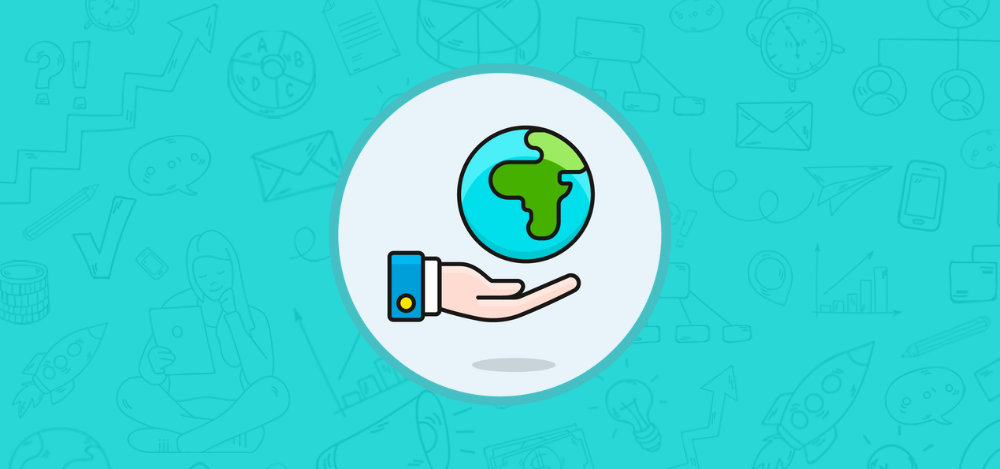Why Non-Profits Need an HR System
Running a non-profit or charity is about creating impact. But behind the fundraising campaigns, community programs, and volunteer initiatives, there’s still the day-to-day admin that keeps your people supported and your organization compliant.
For many charities, this means juggling spreadsheets, paper files, and disconnected tools. It works, up to a point. But as your team grows (whether staff, part-timers, or volunteers), the cracks start to show. Important information gets missed, compliance checks take too long, and admin eats into hours you’d rather spend on your mission.
That’s where an HR system (HRIS) makes a difference. It:
- Centralizes all employee and volunteer data.
- Automates routine admin.
- Helps you stay compliant with funder and legal requirements.
- Gives your team easy self-service access.
- Frees you up to focus on strategy, people, and impact.
In short: less time on paperwork, more time on purpose.
What Is an HRIS (and Why Does It Matter for Charities)?
An HRIS (Human Resource Information System) is software that manages your HR processes in one place. For charities, it’s especially valuable because:
- Accuracy matters: Manual records are prone to mistakes, which can create compliance or reporting headaches.
- Compliance isn’t optional: Whether it’s working with children, volunteers, or grant requirements, you need to track certifications, policies, and training.
- Employee and volunteer experience counts: Onboarding, leave management, and performance should be seamless, even when HR isn’t someone’s full-time job.
- Scalability is essential: As your programs and teams grow, your HR processes need to keep pace.
The right HR system gives you structure, consistency, and the confidence to scale without being bogged down by admin.
How to Choose the Right HR System for Your Charity
Not all HR systems are created equal, and many are designed with large corporations (and big budgets) in mind. For non-profits and charities, the right fit usually means:
- Ease of use – Simple, intuitive tools that anyone on your team can use, even if HR isn’t their background.
- Affordable and transparent pricing – No lock-in contracts, no hidden costs, just clear pricing you can budget for.
- Essential features – Employee records, leave tracking, onboarding checklists, compliance management, and performance reviews.
- Remote-friendly access – A system that works for dispersed teams, volunteers, and staff across multiple locations.
- Scalability – The ability to grow with you as your organization expands.
Think of it as choosing a system that supports your mission, not one that distracts from it.
Key Benefits of Implementing HR Software in Non-Profits
By moving away from spreadsheets and disconnected tools, charities and non-profits can:
- Save time: Reduce hours spent on manual admin.
- Reduce errors: Keep records accurate and up to date.
- Stay compliant: Have everything organized for audits, boards, or funders.
- Empower staff and volunteers: Self-service portals mean fewer repetitive questions.
- Support remote or global teams: One system works across multiple locations and time zones.
Why HR Partner is the Ideal HRIS for Non-Profits
HR Partner was built with small and medium-sized organizations in mind, specifically those with 20–500 people. That makes it a perfect fit for charities, where HR is often just one of many hats someone wears.
With HR Partner, you can:
- Keep centralized employee and volunteer records.
- Manage leave and time-off requests online.
- Streamline onboarding with digital checklists.
- Track performance reviews and goals.
- Use eSignatures for policies and contracts.
- Handle expense claims digitally.
- Give your team access through an employee self-service portal.
And because we know budget matters, we offer up to 30% off for non-profits and charities – for life.
Frequently Asked Questions about HR Systems for Charities
What is an HRIS?
An HRIS (Human Resource Information System) is software that helps manage HR tasks such as employee records, leave tracking, onboarding, compliance, and performance reviews. It centralizes information, reduces admin, and keeps everything accurate.
Why do charities need an HR system?
Charities often run on tight resources, with HR managed by people who are also juggling other roles. An HR system cuts down admin, reduces errors, and helps you stay compliant—so you can focus on impact, not paperwork.
Can HR Partner support volunteers as well as employees?
Yes. HR Partner can store records, track leave, and manage onboarding or compliance for volunteers as well as employees.
Is HR Partner affordable for non-profits?
Absolutely. We know budgets are stretched in the non-profit sector, which is why we offer up to 30% off for non-profits and charities for life.
Take the Next Step
Your mission deserves your focus, not endless HR admin. With HR Partner, you can simplify processes, stay compliant, and give your team the support they need.
Book a demo with our team or start your free 14-day trial today.

